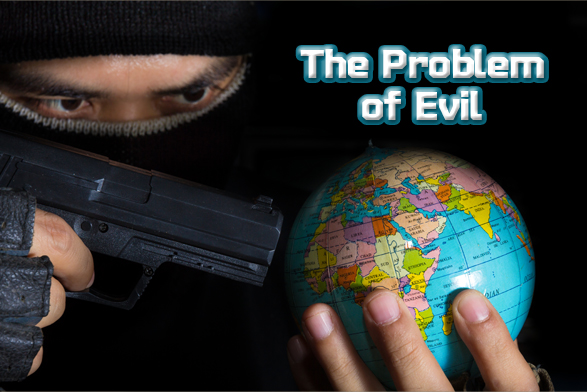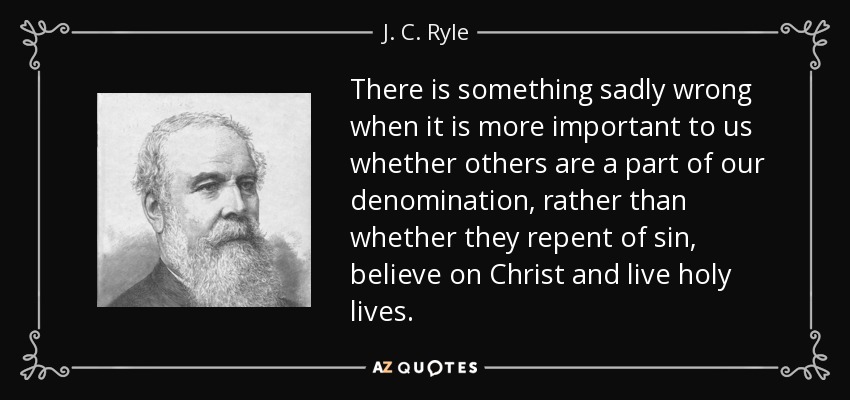Why are there so many Christian denominations? They can’t all be right!
First, let’s make a distinction between Christian and non-Christian groups. Christian groups are Methodists, Presbyterians, Lutherans, Baptists, Independent churches, etc. All these groups agree on the “core” beliefs. Then there are non-Christian cults like Mormonism and Jehovah Witnesses. They claim to be Christian but deny one or more of the “core” beliefs, like belief in the trinity. Then there are the false religions, like Islam, Buddhism, Hinduism, etc. who don’t believe in most or any of the “core” beliefs.
The differences in Christian denominations are caused by several different reasons.
– there are doctrinal differences between denominations but they are minor differences, not major ones. In all of the Christian denominations, there are certain core beliefs that all denominations agree on. These major doctrines are belief in the trinity, in Jesus Christ as the only way to God and heaven, belief that Jesus is God, that only Jesus can save us, that the bible is the inspired Word of God, that Jesus will physically return to Earth at a future time to set up His eternal kingdom, etc.
All other doctrinal differences are minor ones. These include the method of baptism (whether by full immersion or by sprinkling), whether or not you can lose your salvation, exactly how Jesus will come back at His 2nd coming, etc. These minor doctrinal differences make up a big part of why some people prefer one denomination over another.
– Some people are evangelistic in their meetings while others stress how to live as a believer. Some are a combination of both.
– Some people can learn better from a certain style of teaching. Baptists tend to be exegetical (studying the bible line-by-line) while others tend to study topical subjects, like prayer, temptation, etc.
– Some people can learn better from a teacher than a preacher.
– Some people prefer a more reverend worship service while others like a more contemporary or livelier worship service.
– Some prefer a Pentecostal/charismatic service while others do not.
– Some denominations stress lot of community involvement, like having food pantries for the poor, while others stress areas like marriage counseling, small groups, child & teen programs, etc.
– Many of these denominations started as a “protest” at the prevailing style of Christian expression in their local areas. These denominations were started by honest differences of opinion by godly, albeit flawed, men seeking to honor God. Here is a listing of some of the major denominations and when they started;
Christianity 30-33 AD
The 3 major branches of Christianity are;
Roman Catholics 1054 AD
Eastern Orthodox 1054 AD
Protestants 1500’s
Major Protestantism branches are;
Reformed/Presbyterian 1520 AD Methodist/Wesleyan 1787 AD
Lutheranism 1520 AD Adventist 1863 AD
Anglican/Episcopalian 1534 AD Pentecostal 1906 AD
Congregational late 1500’s-early 1600’s Church of the Nazarene 1908 AD
Baptists 1609 AD Charismatics 1960’s
Unfortunately, some of these mainline denominations are being influenced by worldly concerns that go against what the bible teaches.
There is also concern that some people may join a church but not really believe all that it says. Almost all churches have some people in them that have never accepted Jesus Christ into their lives. As the old saying goes, just because you’re in a bagel factory doesn’t mean you’re a bagel. Realizing that Jesus died for your sins, inviting Him into your life to be your personal Savior and Lord are requirements for becoming a Christian, no matter what denomination you’re in.
There are so many Christian denominations because people are different in these minor areas of doctrine, worship style, teaching style, community involvement, etc. But when it comes down to core beliefs, Christians are mostly united. Its very interesting that the bible never mentions denominations. We are told to be united. So, diversity is a good thing but disunity is not. We are to be united in Christ (John 17:21-22) and to love one another ( 1st John 4:11-12) within our diversity. We shouldn’t stress our differences but our unity (1st Corinthians 1:12-13). Colossians 3:11-17 and Galatians 3:28 say that there is no difference whether we be Black or White, Baptist or Methodist, man or woman, etc.
We are all brothers and sisters in Jesus Christ.
Dave Maynard
https://bsssb-llc.com








